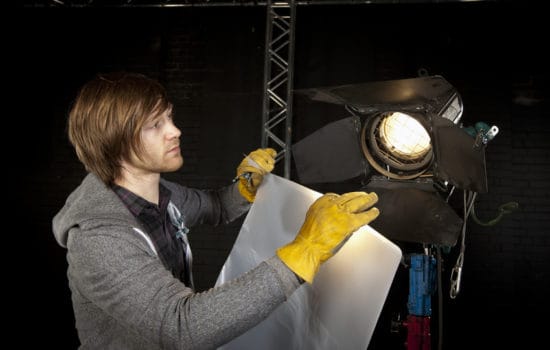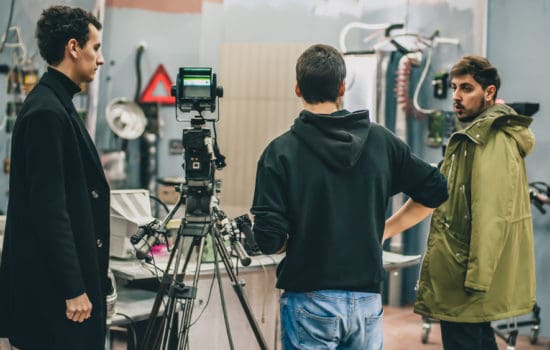Hopefully, you have familiarized yourself with screenplay format and you remember that setting, characters, and plot are the basic structure always working in the back of your mind when you’re writing. If not, here is an example of screenplay structure from a web series I wrote called Sexcommunicated about a 20-year veteran Priest who leaves the priesthood and starts dating in Los Angeles:
FADE IN:
EXT. SMALL HOME – NIGHT [SETTING]
It’s a two-story, modest home in a quiet Los Angeles suburb.
CUT TO:
INT. KITCHEN – NIGHT
Various pots of steaming food percolate on the stove. The hands of DAVIN’s father reach in – one holding a spoon and the other holding a bowl. His name is FERGUS.
FERGUS [CHARACTER]
(proudly)
I hope you enjoy this. I started it this morning for me and your mom, but there’s plenty for all of us.
CUT TO:
THE KITCHEN TABLE
DAVIN sits there looking at his father as his father places the bowl in front of DAVIN.
DAVIN
Thanks dad.
FERGUS calls out to DAVIN’s mother.
FERGUS
Shauna! Quit messing with that toilet and come down here. Dinner’s ready.
Fergus plops down in his seat.
FOOTSTEPS can be heard coming down the stairs.
SHAUNA, DAVIN’s mom (60s), walks into the kitchen and stops. She has a plunger in one hand as she puts her hands on her hips.
SHAUNA
(to DAVIN)
What’s this shit I hear about what happened at church this morning? You yelled at that Lisa Burk girl – made a whole scene in front of Miriam Mahoney! [PLOT]
Davin is wide-eyed.
DAVIN
How in the hell could you possibly know that?
SHAUNA
Oh, I have my sources.
Fergus is just about to eat a spoonful of stew.
FERGUS
Miriam posted it on Facebook.
DAVIN
That old woman is on Facebook???
Shauna sits down.
SHAUNA
Oh son, everyone is online today.
DAVIN
I’m not.
When writing your web series script, it’s important to note that each page, when formatted correctly like above, will equal approximately 1 minute of screen time. Of course, this can vary depending on how much description you write and if you have stunts or action sequences, but the general rule of thumb is 1 page equals 1 minute.
Therefore, if you write 3 pages, you have a 3-minute episode. Try to avoid too much description in your script and make it is as bare bones as possible. Write the essential description and dialogue and try to avoid narration at all costs. Narration is generally a cop-out and you’ll spend too much time telling rather than showing.
Finally, each episode – whether 1 minute, 3 minutes, 5 minutes, or 10 minutes – should end on a cliff hanger that bridges one episode to the next. Since you’re writing a series, each episode should tell a story arc that connects, forming a complete story from beginning to end.
What is meant by web series?
Anna Keizer (CareersInFilm)
Web series can be a confusing term. Some people consider web series a set of episodes that drop on a platform such as YouTube or Vimeo. Others would include in the definition of web series shows that can be watched through online streaming platforms such as Netflix or Hulu.























